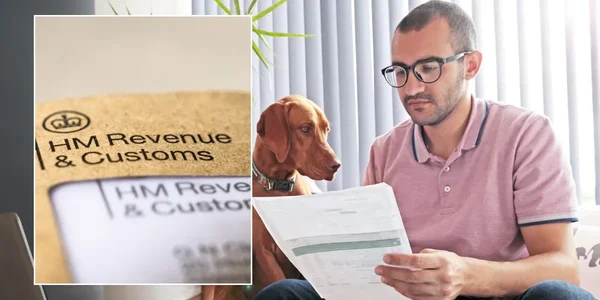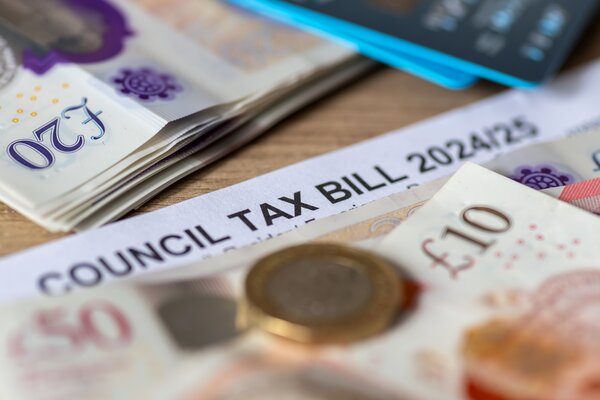Let’s Keep It Real
Cryptocurrencies offer exciting investment opportunities, but the tax implications can be daunting for UK investors. HMRC has clear guidelines on taxing crypto assets, but there are legitimate ways to reduce your liability. If you want to avoid tax on cryptocurrency legally, this article will focus on strategies to avoid tax while staying compliant. When it comes to crypto taxes and taxes in the UK, understanding the rules is essential. Many investors look for ways to avoid crypto tax through legal means.
Pie tax, the UK’s first personal tax app, helps track your crypto tax position throughout the year, not just at deadline time. Or if you’re just here to get to grips with it all, let’s break it down!
What Actually Triggers Capital Gains Tax on Crypto in the UK?
In the UK, HMRC doesn’t tax you simply for holding cryptocurrency. Instead, tax becomes due when you “dispose” of your crypto assets. Tax is only triggered when you dispose of a crypto asset or there is a change in beneficial ownership.
A disposal happens when you sell crypto for pounds, exchange one cryptocurrency for another, or use crypto to pay for goods or services. Any crypto transaction that results in converting crypto assets into fiat currency, swapping between cryptocurrencies, or using crypto for purchases is considered a taxable event.
These actions can trigger Capital Gains Tax if you’ve made a profit since acquiring the crypto. In such cases, capital gains tax cgt applies, and you may need to pay capital gains tax on the profit made from the disposal.
Income Tax might apply instead if you’re receiving crypto through mining, staking, or as payment for services. You may need to pay income tax on crypto income, including trading income and miscellaneous income, depending on how the earnings are classified.
Ultimately, you must pay taxes, pay tax, and may owe taxes on your crypto activities, so it is important to report all relevant transactions to HMRC.

Trading and Income Tax: What You Need to Know
When it comes to trading cryptocurrency in the UK, understanding when income tax applies is crucial. Not every crypto investor is considered a ‘trader’ for income tax purposes.
HMRC typically reserves this classification for individuals who buy and sell crypto assets with such frequency, organisation, and intent that their activity resembles a business. If you’re simply buying and selling crypto assets on your own account, you’re unlikely to be classed as a trader.
However, if your crypto activities are sophisticated and frequent like a day trader who actively seeks short-term profits your profits may be subject to income tax rather than capital gains tax.
In these cases, your net profits from trading crypto assets are added to your taxable income and taxed at the standard income tax rates: 20%, 40%, or 45%, depending on your income bracket. National Insurance contributions may also apply.
Smart Ways to Reduce Your Crypto Tax Bill
The most straightforward way to legally minimise your crypto tax is by making full use of your tax-free allowances. The annual tax free allowance, also known as the tax free allowance, is the amount of gains you can realise each year without incurring Capital Gains Tax. For the 2023/24 tax year, each person has a £6,000 Capital Gains Tax allowance.
Couples can effectively double this allowance by transferring assets between spouses. These transfers aren’t taxable, creating opportunities for tax-efficient planning.
Timing your crypto sales strategically across different tax years can help you use your allowances efficiently. This approach requires foresight but can significantly reduce your overall tax burden.
If you’ve made losses on some crypto investments, don’t waste them! You can offset these against your gains to reduce your tax bill. By using losses to offset capital gains, you can lower your overall tax bill on your crypto investments.

Tax Loss Harvesting: Turning Losses into Tax Savings
Tax loss harvesting is a smart strategy for crypto investors looking to reduce their capital gains tax bill. The idea is simple: if you have crypto assets that have dropped in value, you can sell them to realise a loss. These losses can then be used to offset gains made from selling other crypto assets, reducing your overall capital gains tax liability.
To make the most of tax loss harvesting, timing and record-keeping are key. You need to ensure that your losses and gains occur within the same tax year or are properly carried forward to future years. Understanding your crypto cost basis the original value of your assets is essential for accurate tax calculations. By offsetting gains with losses, you can lower your tax bill and keep more of your investment returns.
Using a crypto tax calculator can help you track your gains and losses, making it easier to identify opportunities for tax loss harvesting. Just remember to keep detailed records of all your transactions, as HMRC will require proof if you claim these deductions. With careful planning, tax loss harvesting can be a valuable tool for managing your crypto tax liability.
Using Tax Wrappers for Your Crypto Investments
While you can’t hold cryptocurrencies directly in an ISA, some crypto-related investments can be sheltered from tax. This creates opportunities for tax-efficient exposure to the crypto market.
Certain exchange-traded products (ETPs) that track crypto prices can be held within stocks and shares ISAs. This arrangement gives you tax-free returns on your crypto-related investments.
For pension planning, some SIPPs allow investment in crypto ETPs. This approach potentially offers tax advantages for retirement savings through crypto exposure.
Time Your Transactions Wisely
Tax-year timing can make a huge difference to your crypto tax bill. The UK tax year ends on April 5th, creating planning opportunities.
Consider selling assets just before and just after the tax year end. This strategy allows you to use two years’ worth of allowances in quick succession.
Be careful of the “bed and breakfasting” rule though. HMRC will catch you if you sell and rebuy the same crypto within 30 days.
For larger portfolios, create a disposal schedule that spreads gains across multiple tax years. This approach can keep you within annual allowances and lower tax brackets.
Gifting crypto to a spouse or civil partner is another timing strategy that can help utilize CGT exemptions or allowances. When gifting crypto, it's important to use the fair market or fair market value at the time of the gift to determine any tax implications.

Common Crypto Tax Mistakes to Avoid
Navigating crypto tax in the UK can be tricky, and there are several common mistakes that can lead to unexpected tax liabilities. One of the biggest errors is failing to report crypto transactions on your self assessment tax return. HMRC requires all taxable crypto activities to be declared, and missing this step can result in penalties or fines.
Another frequent mistake is not keeping accurate records of your crypto transactions. Without detailed records, it’s difficult to calculate your tax liabilities correctly, and you may miss out on allowable deductions. Some investors mistakenly believe that all crypto transactions are tax free, but this is rarely the case most disposals, including selling, trading, or spending crypto, are taxable events.
It’s also important to consider the tax implications of gifting or donating crypto assets. These actions can trigger tax obligations if not handled properly. By staying aware of these common pitfalls and keeping thorough records, you can avoid costly errors and ensure your crypto tax return is accurate and compliant.
Final Thoughts
Legally reducing your UK crypto tax bill comes down to using available allowances and timing your transactions wisely. Keeping meticulous records is equally important for compliance.
While there are legitimate strategies to minimise your tax, always stay on the right side of the law. HMRC is getting increasingly sophisticated at tracking crypto assets.
When in doubt, consult with a tax professional who understands cryptocurrency. This expertise can save you money and stress in the long run.

Pie.tax: Simplifying Crypto Tax Management
Keeping track of crypto transactions for tax purposes can quickly become overwhelming. This is especially true if you use multiple exchanges and wallets for your activities.
Pie tax connects directly to your crypto platforms to automatically import and categorise transactions. As a leading crypto tax software solution for UK users, Pie.tax streamlines accurate tax reporting and compliance.
The app calculates your tax position in real-time throughout the year, not just at filing time. This ongoing visibility helps you make informed decisions about when to sell or hold assets.
Unlike generic tax software, Pie.tax understands crypto-specific events like staking rewards and airdrops. These transactions have unique tax implications that general tax tools often miss.
Why not check out how Pie.tax works if you’d like to take the headache out of crypto tax reporting?










